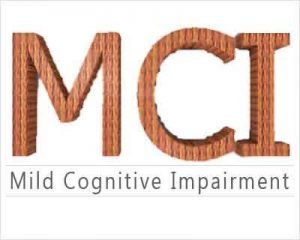- Home
- Editorial
- News
- Practice Guidelines
- Anesthesiology Guidelines
- Cancer Guidelines
- Cardiac Sciences Guidelines
- Critical Care Guidelines
- Dentistry Guidelines
- Dermatology Guidelines
- Diabetes and Endo Guidelines
- Diagnostics Guidelines
- ENT Guidelines
- Featured Practice Guidelines
- Gastroenterology Guidelines
- Geriatrics Guidelines
- Medicine Guidelines
- Nephrology Guidelines
- Neurosciences Guidelines
- Obs and Gynae Guidelines
- Ophthalmology Guidelines
- Orthopaedics Guidelines
- Paediatrics Guidelines
- Psychiatry Guidelines
- Pulmonology Guidelines
- Radiology Guidelines
- Surgery Guidelines
- Urology Guidelines
AAN's Practice Guideline Update for Mild Cognitive Impairment

American Academy of Neurology (AAN) has issued practice guideline, “Update: Mild Cognitive Impairment,” which has been published online ahead of print in Neurology ®. It will appear on January 16, 2018, print issue.
Major Recommendations -
For Assessing Mild Cognitive Impairment
- For patients for whom the patient or a close contact voices concern about memory or impaired cognition, clinicians should assess for MCI and not assume the concerns are related to normal aging.
- When performing a Medicare Annual Wellness Visit, clinicians should not rely on the historical report of subjective memory concerns alone when assessing for cognitive impairment.
- For patients for whom screening or assessing for MCI is appropriate, clinicians should use validated assessment tools to assess for cognitive impairment.
- For patients who test positive for MCI, clinicians should perform a more formal clinical assessment for diagnosis of MCI.
- For patients with MCI, clinicians should assess for the presence of functional impairment related to cognition before giving a diagnosis of dementia.
- For patients suspected to have MCI, clinicians who themselves lack the necessary experience should refer these patients to a specialist with experience in cognition.
- For patients diagnosed with MCI, clinicians should perform a medical evaluation for MCI risk factors that are potentially modifiable.
- For patients and families asking about biomarkers in MCI, clinicians should counsel that there are no accepted biomarkers available at this time.
Recommendations for Management of MCI-
- For patients diagnosed with MCI, clinicians should wean patients from medications that can contribute to cognitive impairment(where feasible and medically appropriate) and treat modifiable risk factors that may be contributing.
- For patients diagnosed with MCI, clinicians should counsel the patients and families that there are no pharmacologic or dietary agents currently shown to have symptomatic cognitive benefit in MCI and that no medications are FDA-approved for this purpose.
- For patients diagnosed with MCI, clinicians may choose not to offer cholinesterase inhibitors.
- If clinicians choose to offer cholinesterase inhibitors, they must first discuss with patients the fact that this is an off-label prescription not currently backed by empirical evidence.
- For patients diagnosed with MCI, clinicians should recommend regular exercise (twice per week) as part of an overall approach to management.
- For patients diagnosed with MCI, clinicians should discuss diagnosis and uncertainties regarding prognosis. Clinicians should counsel patients and families to discuss long-term planning topics such as advance directives, driving safety, finances, and estate planning.
- Clinicians should assess for behavioral and neuropsychiatric symptoms in MCI and treat with both pharmacologic and nonpharmacologic approaches when indicated.
This practice guideline was endorsed by the Alzheimer’s Association.
cognitive impairmentDiagnosisjournal American Academy of Neurologymild cognitive impairmentneuropsychiatric symptomsPractice Guideline
Source : AANNext Story
NO DATA FOUND

Disclaimer: This site is primarily intended for healthcare professionals. Any content/information on this website does not replace the advice of medical and/or health professionals and should not be construed as medical/diagnostic advice/endorsement or prescription. Use of this site is subject to our terms of use, privacy policy, advertisement policy. © 2020 Minerva Medical Treatment Pvt Ltd